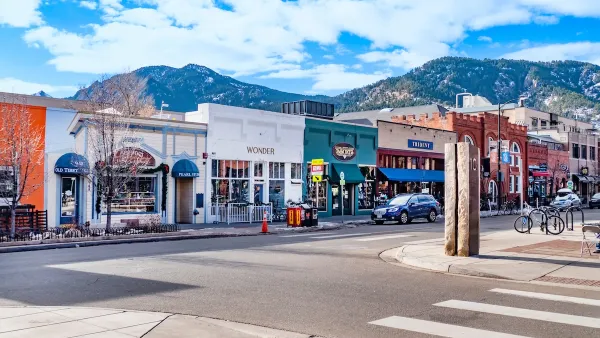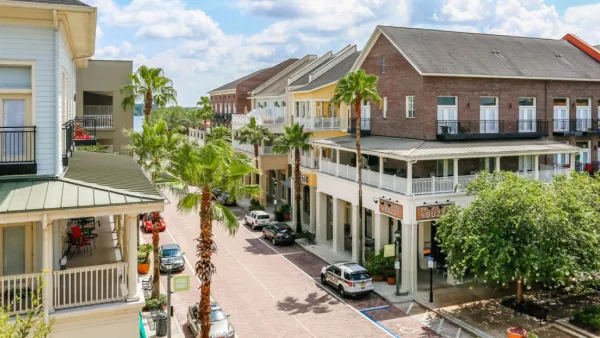If jobs and services are reoriented and public transport rethought, sprawling cities like Melbourne can mitigate the consequences of dwindling energy supplies, argues a recent column.
"Melbourne has a huge footprint, and in a future of energy shortages and other ecological pressures it seems obviously unsustainable to continue development as we have.
These concerns naturally lead to thinking about ways to curb its spread. It also leads to an emphasis on the suburban rail system and the need to extend it out further along the spreading corridors, bringing the newest and most distant into contact with the whole. Somehow we need to get it all back under control.
However, most Melburnians know how to deal with this physical spread. In simple terms they do not think about it, but rather use just those bits of the area that they need...That view of the world can be seen in the way that the majority match a job and a home: a very large share of all workers now travel to work within the sector of Melbourne where they live...Real Estate agents report many house sales are to clients already within the general area."
"The fact that we have coped so far with the vast scale of the metropolitan area is not grounds to forget about its growth and development. Far from it. What it does mean though is we need to re-think the way we go about addressing the serious difficulties of housing supply, job availability, and the need to increase travel by public transport.
What we need to do is devise regionally focused solutions to some of these issues, solutions that match the way the majority use the urban area, rather than be mislead by worry about its overall size."
FULL STORY: Well-managed sprawl can make a city liveable

Planetizen Federal Action Tracker
A weekly monitor of how Trump’s orders and actions are impacting planners and planning in America.

Maui's Vacation Rental Debate Turns Ugly
Verbal attacks, misinformation campaigns and fistfights plague a high-stakes debate to convert thousands of vacation rentals into long-term housing.

San Francisco Suspends Traffic Calming Amidst Record Deaths
Citing “a challenging fiscal landscape,” the city will cease the program on the heels of 42 traffic deaths, including 24 pedestrians.

Amtrak Rolls Out New Orleans to Alabama “Mardi Gras” Train
The new service will operate morning and evening departures between Mobile and New Orleans.

The Subversive Car-Free Guide to Trump's Great American Road Trip
Car-free ways to access Chicagoland’s best tourist attractions.

San Antonio and Austin are Fusing Into one Massive Megaregion
The region spanning the two central Texas cities is growing fast, posing challenges for local infrastructure and water supplies.
Urban Design for Planners 1: Software Tools
This six-course series explores essential urban design concepts using open source software and equips planners with the tools they need to participate fully in the urban design process.
Planning for Universal Design
Learn the tools for implementing Universal Design in planning regulations.
Heyer Gruel & Associates PA
JM Goldson LLC
Custer County Colorado
City of Camden Redevelopment Agency
City of Astoria
Transportation Research & Education Center (TREC) at Portland State University
Jefferson Parish Government
Camden Redevelopment Agency
City of Claremont





























